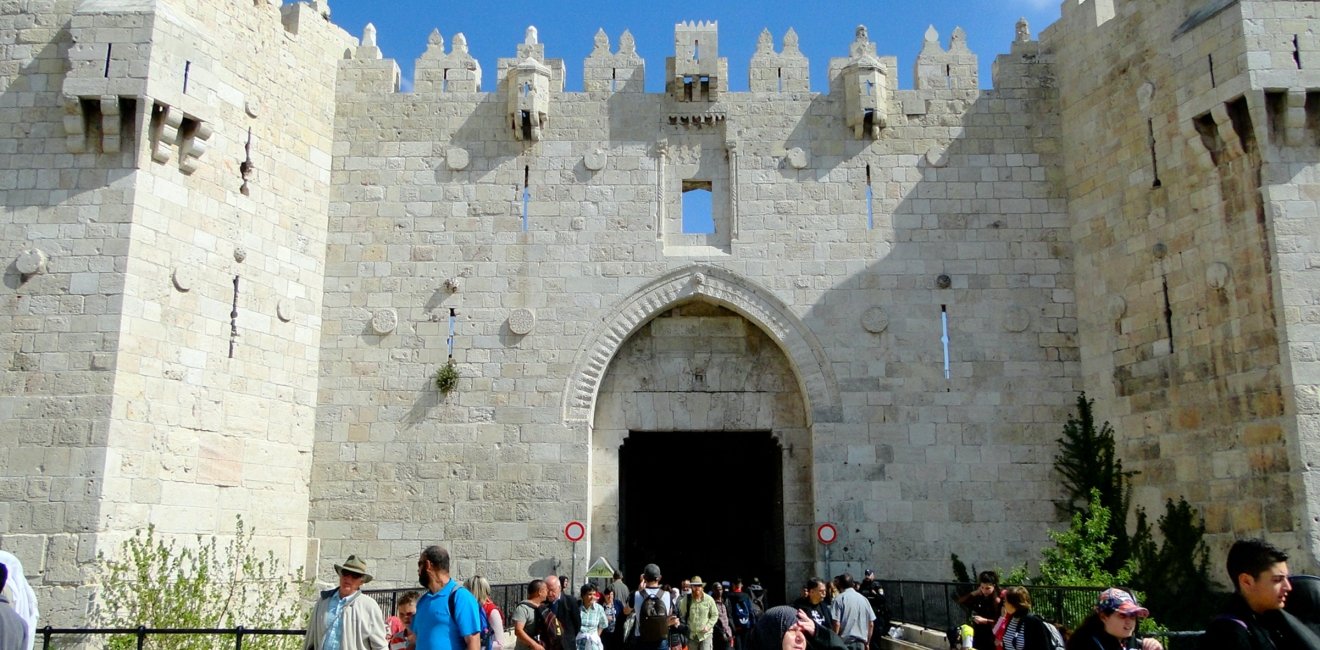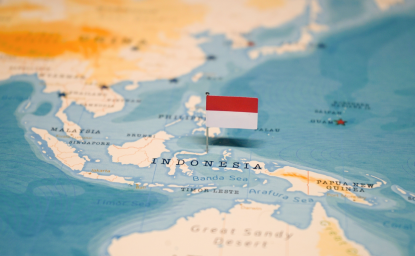This summer, 23 Moroccan citizens visited Israel for the first time through Sharaka, a non-profit, non-governmental initiative based in Israel, which I direct, that works to build Middle East peace based on the Abraham Accords. It was part of our Middle East Holocaust Education program and a brave decision for these individuals, given the tensions around engaging with anything related to Israel and even Jews in the Arab world at this time.
Unfortunately, from the start, participants were subjected to widespread virtual harassment at their universities and bashed by news outlets in Morocco and Algeria, with online backlash or petitions to “expel the Zionists.” These young people wondered whether they would be physically harmed upon landing back in Morocco.
Policymakers in the Arab states who signed the Abraham Accords and their partners in the United States and Europe should adopt more proactive policies to encourage people-to-people engagement and normalization, especially now amid regional tensions. Only then can sustainable and warm peace and moderation—the premises of the Accords—be allowed to take root and continue the deep regional transformation that began in the summer of 2020?
The promise of the Abraham Accords
The Abraham Accords and accompanying historic agreements signed between Israel and Morocco and announced (but not ratified) between Israel and Sudan in 2020 gave a name and a framework to a process of deep regional change that has been slowly taking shape in the Middle East and North Africa (MENA) over the last decade or more. Countries and people around the region have begun to examine their national interests and acknowledge that anti-Semitic and anti-West rhetoric propagated by Arab nationalist and Islamist movements have been used to excuse structural challenges.
To date, and prior to the current war, the governments in the Arab Gulf and Morocco began taking important and gradual steps to encourage normalization and protect those engaged in such efforts within broader modernization and liberalization efforts.
Such efforts have been many years in the making and included allowing Israeli sports and business delegations to enter their countries, warming ties with the local Jewish communities, or increasing openness to Jewish tourists.
However, after October 7, media outlets in these countries have largely not allowed unbiased coverage that presents Israel’s side or opened to Israeli speakers on their outlets, in essence only capturing a narrative sympathetic to Hamas.
Moreover, while the three countries ensure their citizens who do engage with Israel are physically safe, they have not taken action to penalize online harassment or incitement (except the UAE) and allow for radical, anti-Israel, and often antisemitic propaganda to spread rampantly on social media. Therefore, even in these peace states, the average citizen sees a reality that portrays Israel as the aggressor and the Palestinians as victims, almost entirely without context or balance.
Hence, the Sharaka delegation of young Moroccan leaders was both timely and important.
The delegation’s visit to Israel
While a few had been to Israel before and were committed to peace, the majority arrived for the first time with open minds to see for themselves, with a strong belief that what they see on the news and social media is not accurate.
Three participants I interviewed, worldly and highly educated university students, were surprised by every aspect of their experience. They noted a largely negative perception of Israel shaped by the media and were surprised to find a warm, welcoming, and ethnically and religiously diverse country where coexistence is the norm.
They noted that the media almost always villainizes Israel and paints it as hostile or racist to Arabs and Muslims, portraying a conservative, religious, white Jewish supremacist state and society.
They all noted that were it not for first-hand experience, they would not have been able to change their minds about the complex reality that dehumanized Israel and showed the conflict through a political lens. All were surprised to discover so many Israelis of Moroccan descent, while one was shocked to discover over 400 mosques operating freely throughout Israel.
At the same time, the group, while being convinced of Israel’s “right to defend itself” against Hamas, were not all convinced that Israel was managing the conflict in a way that truly sought to minimize civilian casualties, and we held many sensible debates on the topic throughout the week, including on the Gaza border and speaking to experts.
While these 23 were brave enough to visit, many understandably bowed to public pressure and decided to keep a “low profile” upon their return. In this sense, the radical voices inside and around the region achieved their goals. They prevented people from sharing what they saw for themselves and reaching their own nuanced conclusion on a complicated subject while connecting on a human level to the people of Israel.
Changing public views
Moderate Arab leaders are increasingly realizing that formalizing ties with Israel comes with a host of strategic benefits—whether in defense, intelligence, access to technology, increased tourism, and investment. And yet, so long as regional and domestic public opinion remains hostile, such countries are limited by how far and how fast they can make such moves, especially during a war. They all revert to being cautious in the face of public pressure.
A comprehensive survey of Arab countries’ opinion on the war, undertaken by the Arab Center in Washington, DC, in early 2024, showed gradual warming toward “support for recognizing Israel” until the October 7 attack and ensuing Gaza war, with sharp opposition since. For example, only 38% of Saudis opposed recognizing Israel prior to the war, jumping to 68% after, while Morocco went from 67% opposing to 78%.
Similarly, a Washington Institute survey conducted in December of 2023 of Saudis showed that prior to the war, 43% supported business and sports contacts with Israelis, while 30% only “somewhat” disagreed. After October 7, only 17% support such ties, while the opposition stands at 80%, with 41% strongly disagreeing.
Such dramatic increases in opposition are understandable when publics are saturated with hostile (and often false) narratives and information. This is the goal of the anti-normalization crowd. So long as the public is fed hostility to Israel, fewer will want to see it for themselves or seek out various news sources, while those who are willing to do so will be afraid to share their experiences for fear of backlash.
What can be done?
The governments of the Abraham Accords countries have already taken bold steps to initiate peaceful ties with Israel and protect their citizens who choose to engage. As a more powerful step, and with explicit backing from Western powers, they should enact policies to support continued people-to-people engagement, such as through educational visits to Israel by citizens of their countries or via student exchanges. They should ensure that citizens willing to engage in such visits are protected, online and physically, that their jobs or university positions are ensured, and that they work to actively stop online harassment.
Secondly, state-controlled and independent media in these countries should make every effort to portray news on Israel or the current war in neutral terms, allow for and facilitate Israeli guests on their platforms, and send journalists to Israel to cover the news.
Lastly, governments should ensure bad-faith spoilers are not allowed to harass and sow misinformation to radicalize the public. Such policies should be proactively backed and encouraged by the United States and leading European governments.
The vision of the Abraham Accords was and remains to facilitate a deep modernization and integration of the Middle East and North Africa, which must include diminishing the radicalizing aspect of the Israeli-Palestinian conflict and its cynical use.
Decades of positive movement have been achieved since 2020, and with a concerted effort and support from the US and European powers, it is possible and entirely desirable to get the region back on track towards peace, cooperation, and greater integration and not allow wars instigated by radical actors to derail such efforts.
Dan Feferman directs The Sharaka Organization.
The views represented in this piece are those of the author and do not express the official position of the Wilson Center.







